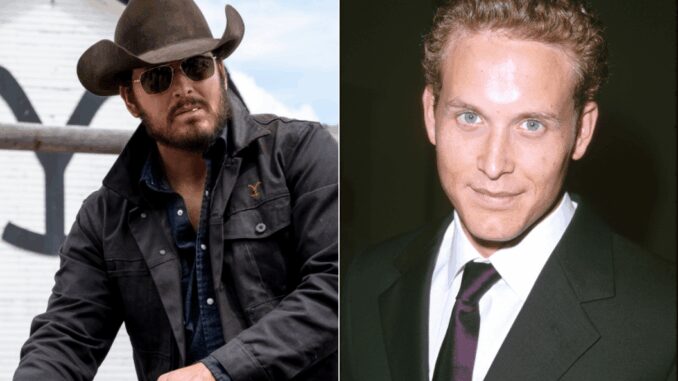
The dust of the Dutton Ranch, both literal and metaphorical, has settled deep into the cultural consciousness, and few figures embody its rugged allure more powerfully than Cole Hauser's Rip Wheeler. A man of few words but profound loyalty, Rip has become an archetype, a silent guardian whose unflinching gaze and unwavering commitment resonate with millions. But when the cameras stop rolling and the Montana snow melts, what happens when that intensely cultivated persona spills over into the everyday life of the actor who brings him to life? Cole Hauser, post-Yellowstone, has found himself navigating a landscape as wild and unpredictable as the show itself: the strange terrain of devoted fan encounters.
Yellowstone isn't just a television series; it's an immersive experience, a modern-day Western epic that taps into a collective yearning for authenticity, for unyielding principles, for a world where loyalty is paramount and consequences are swift. Rip Wheeler, in particular, is a character woven into the very fabric of this fantasy. He's the dark knight, the protector, the moral compass forged in fire. For many viewers, the line between character and actor blurs, and the visceral emotions stirred by Rip's stoic strength and passionate love for Beth Dutton transfer directly to Hauser himself. This blurring, though a testament to his powerful performance, is the wellspring of the "strange."
Imagine, for a moment, the ordinary transformed into the extraordinary. Cole Hauser, a private citizen, steps into a grocery store aisle. Suddenly, the fluorescent lights fade, replaced by the imagined glow of a bunkhouse lantern. A fan, eyes alight with an almost possessive familiarity, might approach him not as Cole, but as "Rip." "Hey, Rip!" they might exclaim, their voice carrying a peculiar blend of admiration and expectation. "You tell Beth I said hi!" The request, though seemingly harmless, implies a shared reality, a belief that Hauser is somehow still living within the Dutton narrative, privy to its inner workings.
The strangeness often deepens into physical proximity. There's the fan who reaches out, not for a handshake, but to touch his arm, perhaps to feel for the calloused strength they associate with Rip. There might be a request for "that Rip stare," an almost theatrical demand for the actor to embody the character's intimidating presence over a latte. Or the person who, mistaking fiction for biography, offers unsolicited advice on how Rip should handle a situation in an upcoming episode, genuinely believing they're speaking to the character himself. These aren't just polite acknowledgments of celebrity; they are intrusions born of a deep, almost spiritual investment in the fictional world.
Hauser, being a seasoned professional, likely navigates these moments with a practiced smile and a generous spirit. He understands the power of the story he helps tell. But there must be a flicker of bewilderment, a slight recoil when the boundaries dissolve. He is Cole, a husband, a father, an actor who goes home at the end of the day. Yet, for some, he is eternally Rip, a figure of uncompromising masculinity projected onto his real-world persona. It's a testament to his artistry that the character is so convincing, but it's also a peculiar burden.
These strange encounters serve as a fascinating microcosm of our relationship with media. They speak to our deep-seated need for heroes, for escapism, for narratives that reflect or challenge our own values. When a character like Rip Wheeler captures the zeitgeist so completely, he becomes more than just ink on a script; he becomes a symbol, almost an entity. And the actor who channels that entity becomes, for a fervent few, its living avatar.
Cole Hauser opening up about these moments isn't a complaint, but an observation – a glimpse into the unique pressures and peculiar magic of extreme fandom. It's a reminder that while the illusion of Yellowstone is carefully crafted on screen, its ripples extend far beyond, creating real-world interactions that are as compelling, and sometimes as strange, as the Duttons' own untamed existence. The man might just want a gallon of milk, but for a moment, he's back on the ranch, confronted by the raw, unwavering gaze of a fan who believes, perhaps a little too much, in the myth.
